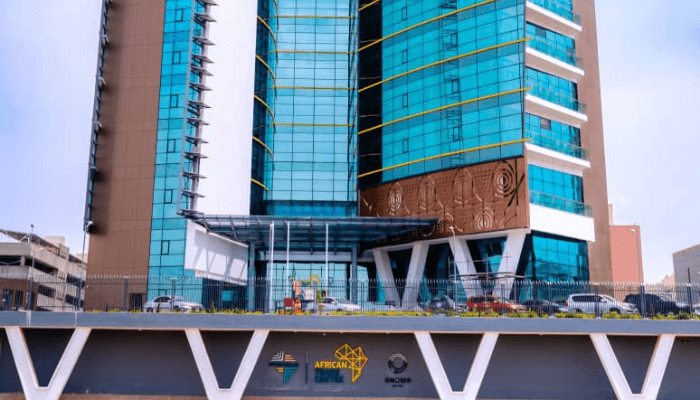Afreximbank began its operations in Abuja in 1993 and opened the AATC as part of its broader mission to boost African trade through infrastructure, policy support and partnerships. The centre is its second African Trade Centre, following the flagship in Cairo, Egypt.
For a bank that opened its doors in Abuja over 30 years ago, the African Trade Centre feels like a full-circle moment. It sits on over four hectares of land and includes a regional office, a large conference hall, a five-star hotel, a tech space for young innovators, retail shops, and a beautiful area to showcase African art. It looks like a deliberate effort to show that trade is not only about goods and services.
Back in December 2018, the Afreximbank Board made a decision; they saw that one of Africa’s biggest problems was not money or infrastructure, it was information. Many African businesses did not know where to sell their products, who to trade with, or how to get support to grow. So, they decided to build trade hubs across Africa and the Caribbean, called the Afreximbank African Trade Centres, or AATCs. These centres were created to bridge the information gap, support trade, and open doors for African businesses, big and small.
But what does this mean for the everyday Nigerian?
The AATC is not just a place for government officials or international investors. It is for the tailor in Aba who wants to sell across borders. It is for the software developer in Lagos building apps that solve real problems. It is for the young woman in Jos with a great business idea but nowhere to grow it. It is a space where buyers, sellers, suppliers, service providers, financial institutions and policymakers can all meet and build something meaningful together.
Read also: Afreximbank records 29% profit after tax in 2024
Afreximbank has plans for nine of these centres across the continent and the Caribbean. When all are up and running, they will form a network that links countries, businesses and institutions, making it easier for Africans to trade with each other and with the rest of the world. It will change how we do business, how we collaborate, and how we see ourselves as people who can compete globally.
Speaking on behalf of President Bola Tinubu at the commissioning ceremony, George Akume, Secretary to the Government of the Federation, described the development as “a game-changer for Nigeria and Africa at large,” calling it “a catalyst for boosting investment and transforming intra-African trade”.
According to Akume, “This centre aligns with Nigeria’s goals under the African Continental Free Trade Area (AfCFTA) and our national ambition to become a trade and manufacturing powerhouse in Africa. We commend Afreximbank for its strategic vision and commitment to Nigeria.”
Benedict Oramah, president of Afreximbank, said the new centre symbolises the bank’s enduring partnership with Nigeria, which he noted had been a founding member and strong supporter since the bank’s establishment over three decades ago.
“This centre is more than just infrastructure; it’s a practical response to Africa’s pressing need for trade-enabling facilities,” Oramah said. “It’s a place where deals will be signed, partnerships formed, and businesses expanded not only across borders but across sectors.”
He emphasised the importance of such physical spaces in enabling the aspirations of the AfCFTA, especially in a region where access to reliable trade information, investment platforms, and corporate services remains limited.
“This is a country of immense potential, and we are proud to invest in its future,” Oramah said.
“From energy and manufacturing to healthcare and culture, Afreximbank will continue to provide innovative solutions to help Nigeria realise its ambitions.”
He added that a similar trade centre is being developed in Cairo, Egypt, and another in Abidjan, Côte d’Ivoire, all part of the bank’s African Trade Centres of Excellence initiative.
The technology hub within the centre will also serve as a base for emerging fintech and trade tech startups. Oramah noted that “Africa’s trade future will not be shaped only by commodities but also by code.”
Chaired by Nigeria’s finance minister, Wale Edun, the event also featured remarks from the Central Bank of Nigeria Governor, Olayemi Cardoso; the Minister of Industry, Trade and Investment, Doris Uzoka-Anite; and Executive Vice President of Afreximbank, Denys Denya.
Cardoso highlighted the crucial role institutions like Afreximbank play in Africa’s financial stability and trade growth. “Nigeria’s ongoing economic reforms are closely aligned with the work being done by Afreximbank. We are charting a path towards self-sufficiency and cross-border trade competitiveness,” he said.

